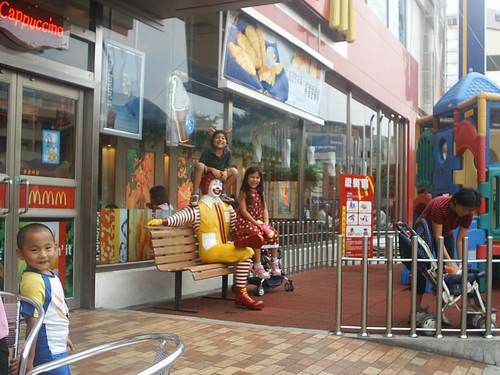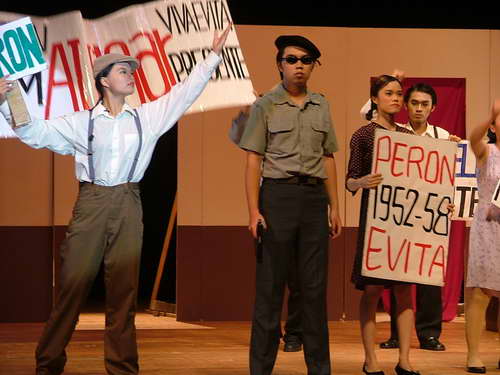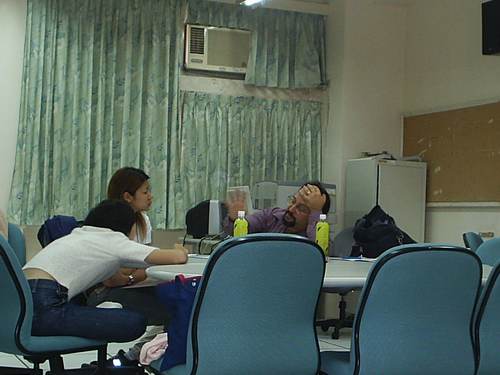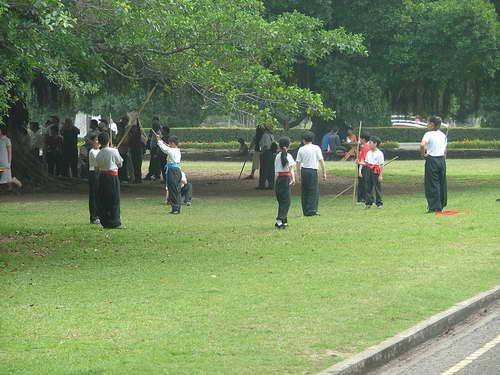Michael A. Turton
Back to Main Page:
Teaching
English in Taiwan
| Introduction | Getting Hired |
| Pay and Benefits | Where to Work |
| Schedules & Workload | Getting Along in the System |
This page is large and may take a few moments to load up.
|
Michael A. Turton Back to Main Page:
This page is large and may take a few moments to load up. |
|||||||
| Getting Along in the System | |||||||
|
|
|
|
|
|
|
|
|
|
| Without publication in an approved overseas journal on the Social Sciences Citation Index (SSCI), promotion is virtually impossible. So get writing! |
| After you have applied for promotion, it travels through the system. The process starts in your department, and then is kicked up through your college, then to the university level. After that it goes to the Ministry for outside review. |
| An application generally takes more than a year for approval. Once approved, the promotion is retroactive to date of application. You will receive the pay difference in a lump. If you fail, you can apply again. And again. There is no penalty for failure, and no cost for trying. So don't be stupid. Go for it! | |
 A small town crowded with shops and cars. |
|
| Whether you get support depends on department and university politics, but in general the university benefits from having more profs of higher rank. If you move up, you can teach grad classes, have a lighter teaching load, get higher pay, and have more clout. There is no downside for anyone here. So go for it! |
| Instructors may apply for promotion to assistant
professor.
However, it is more difficult without a PhD. I do know people who have
done it, so go for it!
|
|
| Two caveats. First, though the MOE may approve, the application for promotion can still fail if, when your personnel department applies for a new certificate for the new rank, there is a problem. |
| Also, though the MOE can grant a rank, the schools may not hire you at that rank. For example, you might move up to full professor at University X, but when you are hired at University Z, they may demand you give up one rank. |
| Many colleges maintain their own journals to give
teachers
a chance to pile up publications. The standards of these journals are
outrageous.
One friend had this to say about his school's journal:
There are some journals here, like [school's] own journal, for example. I am sure some or even many publications are of some acceptably high standard. At my school? They have even spelled the word "Journal" wrong on the cover. This is no exaggeration. My other western colleague actually showed it to me. He said that the amount of plagiarism that can be encountered in there is incredible.
|
|
|
|
|
|
|
|
|
|
|
| Foreign men are sought after in Taiwan and university professors, with good jobs and education, make excellent prospective husbands. Some of my own adult students pursue me quite openly, despite the fact that I am thoroughly married with children. At night I am careful never to be alone in the office with any female, nor do I ever go out with my students in groups of less than four. |
| Thankfully I have excellent relationships with the female faculty here, and they are not interested in me. However, I know several men who complain that they are quite unable to have any friendships with females here; invariably they become the object of someone's quest for love if the relationship goes on long enough. |
| This is a culture with a thoroughly ensconced double standard. Do not talk about sex, joke about it with female students or with female staff and faculty in your department. Do not give gifts to female staff or students. You can easily develop a reputation for being "se," a pervert obsessed with sex. | |
| Put strenuous effort into being fair between girls and boys and especially between the attractive and the unattractive females. The students here are sexually repressed, inexperienced, and insanely jealous, and will spot any favoritism on your fault, real or imagined, to your detriment. Just pretend that you are on a temporary visit to a convent until you become clear about who in your department is mature and who is not. |
| As for pursing an affair with a student, you can kiss your position/career/credibility goodbye over that very easily. The female students will all know instantly if you are pursuing them, or if one of them is having an affair with you. Don't pretend you'll be able to hide it because you can't. Sooner or later you will be reported by a jealous/spiteful/pious/gossipy student to the administration.Even if your higher-ups don't move to fire you, you will have lost all respect and credibility in the department. |
| And think about it: if you plan to date a student after she graduates, it is a dumb idea to get a rep for hitting on students. |
| Never mind that the Taiwanese professors around you may be cheerfully boffing their undergrads. You are not one of them and will not be able to get away with it. In every culture people love to make moral object lessons of foreigners to validate themselves. So don't make yourself a target. |
|
|
|
|
|
|
|
|
|
|
| In fact, sometimes I suspect the real reason institutions and organizations exist here is so Taiwanese can have politics. |
| For example, one friend of mine has been the
object of
another teacher's obsession for several years. This teacher, M,
has
sued my friend P three times and lost all three. He has taped his
classes, tapped his phone, interrogated the students, sent private
detectives
to scour the island's cram schools for negative information on my
friend
and even planted fake stories in the local newspapers through friends.
He went on to sue the President of the University. M has been
reprimanded
by the university, investigated by the police and so on, but he has yet
to be fired.
At several schools I know an anti-foreign Chair rolled out of bed one morning and fired the foreigners. At another all the foreigners were fired, and were not told for five months. At yet another, a foreigner was canned at the semester's end for no reason and not paid salary owing under the contract. One foreigner I know had his contract torn up and substituted by a secret one, without his knowledge or consent. And so on. |
| The authoritarian political and social systems prevalent in Chinese societies mean that the Chair is not the facilitator and administrator, but the absolute ruler of the department. The Chinese simply cannot envision social systems functioning in any other way. |
| Most North Americans, raised in societies and educated in universities with free debate, peer relationships, concensus decision-making and other social systems that do not exist in Asia, are quite shocked at the wide powers of Chairs. Many leave local universities over clashes with authoritarian chairs whose sole goal in life is to extend and preserve their power. |
| Taiwan is littered with academic departments destroyed by Chairs who regard the accomplishments of others as threats to their own power, and cannot imagine the point view adopted by a foreign chair I knew: "it's my job to hire people who are better than me." Such a position is almost totally alien to Chinese thinking. |
| As a foreigner, the other thing that will shock you is the meekness with which Taiwanese accept abuse at the hands of higher administration. |
| Like all despots, Chairs vary greatly; some will let you do what you want, some are interested in consensus and support, others will demand control of everything. |
| The good thing is, as a foreigner you will mostly lie outside of university politics. You won't be around long enough to have weight, and won't participate in any factions. Most of the time you will be completely unaware of the shifting alliances and internecine combat being waged around you. Just grit your teeth, and smile that big dumb foreigner smile. |
| An additional problem you will face is that at every university I have been there is always a powerful faction that opposes improvement. The reasons are complex, but Chinese tend to regard life as a zero-sum game, so any movement forward by someone means that someone is moving backward. So the negative faction may oppose hiring accomplished professors, new equipment and responsibilities, promotions among other faculty members, and may denigrate and attack faculty members who gun for promotion or otherwise seek to improve the department. |
| A typical negative faction moment occurred in an internship meeting last year. We divvied up the teaching interns, who were to teach English in local primary schools, among the faculty on the committee, in order to oversee them. One committee member saw her two students and immediately rejected them. "Why?" she was asked. "They are top students," she explained, "and will be a lot of work." This was met with understanding nods (note that understanding nods are not necessarily approving nods). Of course I instantly asked for them, and spent a rewarding semester mentoring two highly intelligent and hard-working young women. |
| Another problem I have seen: betrayal by friends. A close foreign friend, C., brought in a good local friend as a favor and pushed the department to hire him. This friend later spread rumors about C. and helped lead a faction that worked to get C. fired. |
| In my case, a good friend whom I played PC games with, ate dinner at my house frequently and commiserated with me actually led an attempt to get me fired and knew that I had been fired the whole time (4+ months) he was eating my food and pretending to be my buddy. |
| I found out later that he was jealous that I was more popular with the students than he was. This situation is extremely common in local society (not just foreigners suffer from it). Hurtful as it may seem, be especially wary of Taiwanese faculty members who suddenly become your best buddy. |
| Let's close with a shock introduction to
your administration: at
many schools the administration will be heavily connected
to organized crime gangs. Sometimes it has bad
luck and incompetence. And of course, plagiarism
and bribery for promotion are rife.
One of the most amazing things about Taiwan is the intense pettiness of the major issues. Although the academe in the US gets its own share of abuse for pursing the trivial, they are dilettantes compared to what goes on in Taiwan universities. Some of the most common problems are encapsulated in this resignation letter. |
| Sadly, the collegial relationships that make US universities such pleasant places to work and study are largely absent from Taiwanese universities. |
|
(skip to next section) |
| Object lesson The following situation occurred in the Fall of 2002. The previous semester I had applied to teach a course entitled "Reading Taiwan History in English" which I envisioned as a small readings course with lots of discussion and interaction. My how naive one can be after so many years here! I figured no one would sign up for a boring readings course....so the class would be small. The application was approved by the General Education Center, in charge of history classes. The class instantly filled to its limit, and more students were permitted to join. The result was more than 60 are in it; the break-even point for profitability is 15. I'd like to attribute the popularity of the class to my dynamic teaching but in fact the students never have enough electives even though they are required to graduate, so any elective is eagerly snapped up (students often have to go for extra semesters because they can't get enough electives). The plain fact is that I could have offered a course in "Better Living Through Self-Mutilation" and students would have flocked to it. The University hates offering electives; it costs money. In any case, halfway into the Fall 2002 semester the Gen Ed Center held a meeting about my class. I wasn't invited. A staffer from our department, whom we'll call Yvette, was there for reasons mysterious to me. The meeting about my class was reported at our department curriculum meeting using Yvette's notes. The General Education Center, which is responsible for teaching required Taiwan history courses, reported that: 1. I was not qualified to teach a history class. Several other reasons against this class were put forth and duly reported at our department meeting (I was not present). The General Education Center said that under no circumstances would I be allowed to teach this course again, and it was killed. Question for the bureaucratically-minded: how should I have handled this? What is really going on here? Pause for thought. Now that you've thought about it, let's do a little Taiwan analysis. First off, walking in and blowing them away on points was entirely wrong. In fact, I am qualified to teach a readings class, or a history class, and it is making money hand over fist. Moreover, why didn't they just reject it in the first place when we applied for permission to open the class? But that is entirely irrelevant. There wasn't any situation to "handle" here. You can never win an argument in Taiwan by being in the right (what a dumb idea!). You can only "win" by contriving the political defeat of your opponents, which I am not in a position to do (nor did I desire to). The explanation is simple. The other Taiwan history teachers at the center felt threatened that someone else had chosen to "invade their territory" by teaching history, and so banded together to expel the alien presence in their midst. The reasons were symptoms of the level of insecurity there, not causes for action. Just imagine how, at a progressive university, this might have been handled. The other history profs might have decided to help me, or sit in on the class to see what is going on, or to make the course a permanent part of the curriculum to give the students the option to take it in English. All sorts of positive solutions are possible...but instead, they killed the class. The actual handling was ably done by another, older, teacher
in our
department at the department meeting. Peeved as hell, she ordered the
offending
notes destroyed and lectured Yvette that it was unacceptable for her to
gather information on one of our teachers, hand it over to another
department,
and to permit another department to criticize one of our department
teachers
in such a manner. |
| Object lesson In the Spring of 2002 I taught a general English class for non-majors. I had a student blow off the midterm, and miss many classes and fail to do in-class work and homework. She got 90 on the final, so I passed her, barely. In the Fall of 2002, on the night before the last day grades could be changed, she approached me. I had made a mistake, and could I change her grade? I said I'd check my records and would of course be happy to if there was a mistake. The next day she shows up at the office and asks that her 61 be changed to an 88! My records indicated that I was correct, so I took no action. The following Monday, her advisor pulls me in for a meeting. Could I change the grade? Obviously I just lost the midterm test paper, he said. He implied that I was incompetent and pressured me to change the grade. I told him I'd see what I could do, then sent him a note saying that the grade could not be changed, and that this was the last I expected to hear of the matter. A few days later the Dean called. The Chair of the Department and her advisor had both written letters asking that the grade be raised. The Dean was loathe to do this, because by that point a grade change would have required many meetings (the Dean is very by-the-book). I was loathe as well, since any change would require me to commit to paper that I had made a really silly error, a point which might be held against me at any promotion meeting. My Department Chair also backed me 100%. Do students get to pick their grades? she complained. The Dean asked to see my paperwork. Did it support my case? What did I give the Dean? ONLY the ONE line from my Excel file relating to this student. That's all. The Dean backed me 100%, of course. Lesson: NEVER give extraneous information. If I had handed over the whole file from my class, they would have used it for a fishing expedition into my grading system. Nor did I write a letter explaining my actions or commenting on the matter. I just handed over one line from a table, period. No more, no less. NEVER commit anything to writing that you don't have to, and NEVER hand over information that is not necessary. The other side is looking for any information it can find to discredit your position. It is not interested in "finding out who is right" or "solving the problem." Never presume that the people you deal with will act in good faith. They almost certainly won't. And here's another thought. Both the other department's Chair and the Advisor had taught this girl. If they wanted her grades raised, all they had to do was raise the grades they gave her. Why me? They thought they could bully the foreigner, is all. I was the target because I was a foreigner, period. Neither of those two other teachers wanted a black mark on their record. |
|
|
|
|
|
|
|
|
|
|
| Open criticism of others at the university whether verbally or textually will be instantly passed on to them. There is no way you could write a letter to your Chair about the behavior of library officials or campus maintenance staff and not have it given to them. Do not assume that anything you say in confidence will be kept in confidence. It probably won't. |
| Further, once you start firing off letters to the President or other officials, you will be labeled troublesome (not a "troublemaker" but a pain in the ass) and will lose all credibility and clout. |
| Taiwanese academic society is heavily networked and these networks do not operate openly. Suppose you write a letter criticizing department policy. That letter may be specially faxed to your next prospective employer by your boss, whom you have mortally offended (but who still treats you with politeness and deference while plotting revenge). If your boss doesn't reveal it, perhaps his boss will. Perhaps his secretary will fax it to another school, in an attempt to embarrass yours because she is on her own revenge kick. Perhaps it will come out in a Ministry review, and they will quietly pass it around in their circles. Months later it will show up on websites many times removed from your concerns. | Architectural models fill a hallway. |
| I can't emphasize this enough, so I am going to repeat it: do not lose your temper on people whose help and friendship you need. This is not a culture where people separate their professional and personal relationships. People aren't going to say to themselves: "I don't like Dr. X but the department needs this promotion." They are going to say to themselves: "I hate Dr. X and I will do anything to stop this promotion." |
| In other words, keep your trap shut and smile that big dumb foreigner smile. Say nice things about others. Never criticize. If someone asks for your opinion, make sure it is as bland as tapioca pudding and twice as smooth. For example: |
| DEAN: And how is the university treating the
foreigners,
teacher Smith? YOU: <recalls that his visa has been screwed up for the third straight time> Oh, very well, Dean. <big smile> and always: DEAN: Does anyone have any suggestions? |
| Here are a few pointers:
Never make suggestions or give opinions openly or in meetings. Make them privately and informally (why drag out a meeting?). You are a foreigner and YOU DON'T KNOW ANYTHING! There is nothing you can say that they haven't thought of (your "outside" perspective does not give you insight they don't have. Instead, it renders you a complete idiot. So shut up and quit imagining that you actually know something.)
|
| It is extremely difficult to avoid talking down to foreigners and people in every culture do it to people of other cultures. There is no more difficult thing than to see a foreigner as a human being just like oneself. So always keep in mind that the Taiwanese academician in front of you is as fully human, accomplished, bright, and clever as you are. Don't mistake their deference and politeness for some affirmation of your own unique genius, as all too many foreigners are wont to do. It is only the way they treat foreigners and nothing more. |
| Remember to use titles rather than names when addressing others. |
| In Chinese culture, people are handled by using other people. You can cut down your stress immensely by finding an intermediary to approach the people you need. |
 McDonalds
is everywhere.
McDonalds
is everywhere. |
Foreigners are a threat in any culture,
and doubly
so in Chinese culture. So reduce your threat level. Smile. Say nice
things
about others -- Chinese never hear nice things from those around them;
criticism and advice is the normal conversational mode.
Make jokes. You can seriously reduce your threat level by having a robust sense of humor. Get along to.... get along. |
| Like it or not, all the foreigners will be lumped
together
and what one does reflects on all the others. So keep your idjit fellow
big-noses in line so they don't screw up your position.
Keep your trap shut about your plans, personal life, jobs you have outside the university (technically illegal) and anything else that anyone could grab and screw you with. If you go for promotion, don't announce it to the world. Stay quiet until you make your move. |
| Serve the department. Participate in its life.
Join committees.
Be an advisor. First, you need to serve on committees to get promoted.
Second, serving on committees that make curriculum and schedules can
help
you get classes you want. Third, service is a mark of commitment to the
department and to others that will pay off in the long run. Fourth, no
matter what else you do, the number one priority for the university is
its administrative work. No one will really care how much you publish,
how many hours you teach, how much the students like you, or what a
great teacher you are. All that counts for nothing. Doing
administrative work is the sure-fire way to the heart of your Chairman.
|
| Of course, you can always opt out of department
life. Most
of us won't be around in Taiwan very long. But if you plan on sticking
around....
And don't forget, someday you may return, and it is a good idea to lay the groundwork... |
|
|
|
|
|
|
|
|
|
|
| Under no circumstances will it be acceptable to
give students
100 for a final grade. Be sure to ask before handing out grades
what
you should be doing. Also, you may be required to file their
midterm
grades in the computer. Ask about that too.
At most schools a student who fails goes on to the next level, but must retake the failed class at some point in the future. In other words, if a student fails Econ 101, she goes to Econ 201 anyway, but must take Econ 101 and pass before she can graduate. |
| Each school has its own failing system. At mine, for example, if you fail a student with between 40 and 60 in a two-semester course, they can continue in the second semester but must retake the first. However, if they fail with below 40, they cannot take the spring semester and instead must retake the course at some other time. |
| Never, ever fail a student unless you give them less than 50. A close fail is considered intolerably cruel and everyone will give you a hard time about "she was so close, why didn't you just pass her?" If you must fail someone, fail them emphatically and save yourself a world of hassle on appealed grades. |
| Grading systems can be positively stupid. At one school I taught at, the computer system accepted only quizzes, midterms, and finals, and automatically counted quizzes as 30% of the grade, the midterm as 30% and the final as 40%, regardless of your particular system. Check out the grading system before you sign that contract! |
| Another issue is "pre-determined" grades (note
the problems
above with not being allowed to fail students, and not being allowed to
give high grades). Once a group of teachers which included this writer
had to hand out final grades to students we were overseeing. A teacher
suggested that all grades fall between 80 and 90, and the others
quickly
agreed. This behavior, all too common, is part of a set of larger
problems
in Chinese society, namely, the unwritten rules that anything that can
be abused will be, the success of others is a threat to oneself, and
advancement
is unrelated to merit. I protested that it was flagrantly
unethical
to hand out grades without reference to student effort and achievement,
and gave my students the grades they deserved. The others reacted with
silence. It is important to note that silence does not necessarily
indicate
disapproval.
Schools also vary widely on test policies. Some schools are very rigid and have teachers give a fixed number of tests at fixed times. At both the schools where I have worked, on the other hand, I had complete control. Better ask if this is an issue for you. |
|
|
|
|
|
|
|
|
|
|
| When a student transfers to another major, they keep the old number. Sometimes they are assigned a departmental number and they may also be assigned a seat number in class. In other words, it is possible for a student to carry around 3 numbers and use them interchangeably on exam papers, homework, and so forth. This will drive you mad. From the first, insist that the students use their school ID number, their student number, on all papers and homework, or you will quickly lose track of who is who. |
| As a teacher you may have no control over seating, attendance and numerous other issues. Class sizes are out of your hands. The Ministry limits them to seventy-five in some cases, and just this year new regs have come out forcing class sizes to halve. The large class sizes mean gargantuan amounts of homework -- if you have six classes, each week you generate 300 pages of homework to correct. |
| Not all schools will be like that, thank god. Be sure to find out if class sizes are reasonable at your school. At the university level, classes in the majors have begun to get smaller in recent years, thanks to new regulations from the Ministry. |
| Many classes will have a student leader who is responsible for the class' administrative affairs. If you have problems you can ask for their help. |
| The kids are responsible for cleaning their rooms, the school grounds and the buildings. They are organized into work details. That's right, they pay the schools for the privilege of cleaning them. This practice begins in elementary school and is a feature of the system through the higher ed system. Although cruel, it does keep the cost of tuition down to affordable limits so that the working class can get its children an education. |
| Any deviance from the norm requires filing
paperwork. If
you need to change any fixed arrangement, be sure to ask the department
secretary what you need to file.
|
 My
kids at play at Flying Cow Ranch, a favorite destination for groups of
college students and college students on class trips. My
kids at play at Flying Cow Ranch, a favorite destination for groups of
college students and college students on class trips. |
A crucial figure in the administration is the political officer. These are military officers found on every campus whose job is to educate the students in military affairs, conduct military training and oversee discipline, since Taiwan is still technically in a state of war. The students go to the officers for punishments, which generally involve cleaning. |
 Evita, the senior class play. Evita, the senior class play. |
| In the past the campus military representatives, all serving officers, reported students with unapproved political views to the proper authorities, so that such students could be properly dealt with (killed, imprisoned, harassed, silenced, punished). As Taiwan's politics have changed, they often play an important role in student lives, know many students personally and genuinely care for them, and are often well-loved. Treat them with respect and cultivate them, because they are useful people to know. |  Working
with students between classes. Working
with students between classes. |
| As at any college, offending administration is really dumb. You will be given more latitude than the locals in many things and there will be more tolerance for your errors. This is fortunate, because they never tell you anything and you will constantly miss important events, meetings and so forth. This is not unusual, as foreigners in the US have the same problem. One is expected to know how the system works. |
| A word to the wise: at evaluation time at the end of the semester, students who don't like you may collect extra unused evaluation forms and fill them out with negative reviews of you, stuffing the ballot box (so to speak) to lower your evaluation. Don't let any unused forms fall into their hands. |
|
|
|
|
|
|
|
|
|
|
| Your Students
At the end of 8th grade the students take a major test that sorts them into the academic or vocational track. Once sorted, they then take another test upon emergence from high school to determine which school they will be at. A schematic of the system may be found here.
|
|
 Practicing judo in the early morning on
the campus of Chengkung University. Practicing judo in the early morning on
the campus of Chengkung University. |
Test scores determine which university you go to. If you want to study physics at National Taiwan University, you must have the highest scores in the nation. If you don't, you must go to a lesser school. Students have very little control over their lives. |
| The result of this system is blighted, devastated
lives,
stunted personal growth, low self-esteem, poor student performance, a
total
lack of interest in learning, and gross economic and social
inefficiency.
Students are sorted by the test, not by desire, so many students are
studying
a subject in which they have no interest.
This is true of the English classes as well. The incredible apathy you see among your students is the result of this insane system. As a result of a lifetime spent in study for the testing system and failing, your daytime 4-year students in the vocational university system will have had no experience of the world. They will never have had jobs, been overseas, had boyfriends/girlfriends, seen old movies, read books, owned a business, had a hobby, gone camping, and so on. They are a people utterly devoid of passions. On the weekends they spend their time playing basketball, watching TV, and sleeping. You will no doubt come to have great compassion for their stunted lives, victimized by a brutal cookie cutter system that neither stimulates their interests nor addresses their talents. |
| The emphasis on rote learning means that the
students will
have had little experience in applying the models they have learned to
the real world. Information is only important if it helps them pass a
test.
Consequently, they are whizzes at formulas, since those routinely
appear
on tests, but hopeless at critical thinking. Question asking may result
in loss of face, so they will not ask you any questions.
Student-teacher
interactions will be extremely limited. |
| Your questions to them will often be met with silence while they wait patiently for you to tell them the answer, since, after all, your role as a teacher is to tell them the answer. |
| The political implications of this educational system should be clear. Its purpose is to keep students from developing robust ideas about the world around them that might help them make sense of the system that controls their lives, and enable them to reach for personal autonomy and independence. |
| Each year the student intake is controlled by the
Ministry.
For example, at Chaoyang we are allowed to have two classes of fifty
students
each in the first year. Exactly 100 students. The school may not
increase
this without permission from the Ministry of Education.
These classes, typically called the A and B classes (for example, second year A class is invariably referred to as "2A") are the center of the students' lives for the next 4 years. For the next four years they take all their classes together, go to activities together, and essentially form a surrogate family, support system, and network that in many cases will hang together for the rest of their lives. |
| Some pictures of my students. |
|
|
|
|
|
|
|
|
|
|
Thanks for reading this far! A friend visited me in Taiwan and took these pictures in 2002.
If you got this far, you are forewarned. Check out my info on living and teaching on the Beautiful Island.
| Introduction | Getting Hired |
| Pay and Benefits | Where to Work |
| Schedules & Workload | Getting Along in the System |
| Back to Teaching English in Taiwan | Email Me |